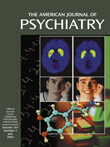Quetiapine for Chronic Motor Tic Disorder
Mr. A was a 26-year-old single African American man who had been diagnosed with chronic motor tic disorder at age 7. He had symptoms of social phobia, including difficulties with public speaking and daily social interactions. His tic disorder was familial. Trials of medications since grade school included haloperidol, pimozide, clonidine, sertraline, alprazolam, propranolol, diazepam, olanzapine, and risperidone. These trials included full therapeutic doses for a sufficient duration. Risperidone was the most effective medication in relieving his symptoms but caused extensive weight gain, which led to discontinuation. The weight gain stopped after the risperidone was tapered; however, the tics reappeared. Diazepam and alprazolam exacerbated the tics. Clonidine and olanzapine were not effective in controlling the tics.Mr. A was then given quetiapine, 25 mg/day, which was titrated to 400 mg/day over several weeks. Within a month, he reported that he could socialize with more ease and was not having any tics. For the first time ever, he was able to speak publicly without any tics or problems initiating speech. Weight gain occurred, although not as much as when he was treated with risperidone.
References
Information & Authors
Information
Published In
History
Authors
Metrics & Citations
Metrics
Citations
Export Citations
If you have the appropriate software installed, you can download article citation data to the citation manager of your choice. Simply select your manager software from the list below and click Download.
For more information or tips please see 'Downloading to a citation manager' in the Help menu.
View Options
View options
PDF/EPUB
View PDF/EPUBGet Access
Login options
Already a subscriber? Access your subscription through your login credentials or your institution for full access to this article.
Personal login Institutional Login Open Athens loginNot a subscriber?
PsychiatryOnline subscription options offer access to the DSM-5-TR® library, books, journals, CME, and patient resources. This all-in-one virtual library provides psychiatrists and mental health professionals with key resources for diagnosis, treatment, research, and professional development.
Need more help? PsychiatryOnline Customer Service may be reached by emailing [email protected] or by calling 800-368-5777 (in the U.S.) or 703-907-7322 (outside the U.S.).

